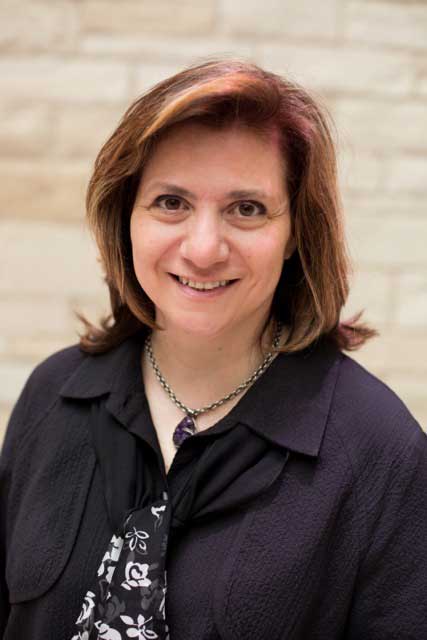Vicky Kalogera

- Daniel I. Linzer Distinguished Professor of Physics & Astronomy, Weinberg College of Arts & Sciences
- Director, Center for Interdisciplinary Exploration and Research in Astrophysics (CIERA)
- Vicky Kalogera wins 2018 Dannie Heineman Prize for Astrophysics
Vicky Kalogera received her Ptihio (B.S.) in Physics in 1992 from the University of Thessaloniki in Greece and her Ph.D. in Astronomy in 1997 from the University of Illinois at Urbana-Champaign. In 1997 she joined the Harvard-Smithsonian Center for Astrophysics as a CfA Postdoctoral Fellow and she was also awarded the Clay Postdoctoral Fellowship in 2000. Kalogera was appointed Assistant Professor at Northwestern University in the Department of Physics and Astronomy in 2001, was promoted to Associate Professor in 2006, and was named the Erastus Otis Haven Professor of Physics and Astronomy in 2009. She is a co-founder and current Director of CIERA, the Center for Interdisciplinary Exploration and Research in Astrophysics, a research center at Northwestern focused on advancing astrophysics studies with emphasis on interdisciplinary connections.
An author of over 200 publications, Kalogera’s research interests are in the astrophysics of compact objects and in particular their formation and evolution in multiple stellar systems. She interprets their observations across the electromagnetic spectrum (from gamma-rays and X-rays to optical and radio waves) as well their gravitational-wave emission. She is a member of two leading science collaborations: LIGO with the goal of discovering Einstein’s gravitational waves, and LSST the most ambitious BigData Astronomy project to date. She also works collaboratively with computer scientists, applied mathematicians, and statisticians, and makes extensive use of high-performance computing.
Kalogera’s work has been recognized and honored in many ways over the years. Among her awards are the David and Lucile Packard Foundation Fellowship in Science and Engineering, the Maria Goeppert-Mayer Award by the American Physical Society (APS), the Cottrell Scholar Award by the Research Corporation, the NSF CAREER Award in Astronomy, the A.J. Cannon Award by the American Astronomical Society (AAS), and most recently a Fellowship in Theoretical Physics from the Simons Foundation. She is also grateful for research funding from the NSF, NASA, and Northwestern University. In 2010 she was elected in the Chair-line of the APS Division of Computational Physics, and she currently serves as the Division’s past Chair. In the past she has served on the Astrophysics Subcommittee of the NASA Advisory Council Science Committee, the NASA Chandra Users Committee, and has also been an elected member of the Executive Committees of the APS Division of Astrophysics, the APS Topical Group on Gravity, and the AAS High Energy Astrophysics Division.
